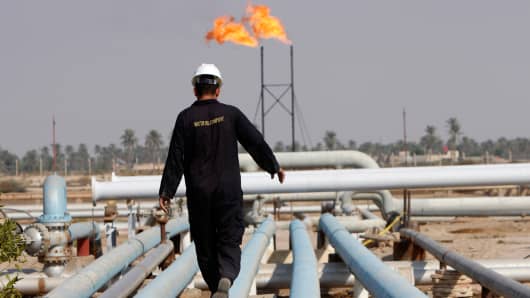The Organization for Petroleum Exporting Countries is claiming victory in the latest oil war. The cartel said recently that demand for ITS oil was going back up, while production of non-OPEC oil (read: U.S. shale oil), was going down.
But the impact on the U.S. oil industry is already being felt and yet, the U.S. has not formulated a policy response to defend against the economic hostage-taking that goes on in world energy markets.
Read MoreTop oil analyst: The worst is yet to come
The rapid decline in prices has cost jobs in the oil industry and forced down the number of rigs in operation. And, the International Energy Agency has already warned that U.S. production may remain elevated if oil companies decide to fight the trend and keep drilling regardless of price, leaving supplies of domestic crude at the highest level in 80 years.
Certainly, the foreign-policy focus has been on ISIS, Ukraine and other hot spots, many of which deliver oil and gas around the world. But energy independence, or even continuing to reduce our reliance on foreign, and sometimes hostile, suppliers of oil and gas, is the answer to most of our Middle East issues.
It is true that less of our oil imports come from the Middle East, (our largest external supplier of oil is Canada). But it is imperative that the U.S., again, after four decades of incoherent energy policies, take steps to ensure the continued increases in domestic production.
Read More$20 oil 'is still possible': Gartman
While I, like many others, remain concerned about the environmental impact of fracking, the changeover to electric cars, natural gas-powered trucks, and, eventually distributed nuclear power may render oil obsolete one day, and maybe even sooner than we think. But until then, rather than fighting wars over who controls the oilfields outside the U.S., how about winning the war about who controls its price?
After that, we can decide who among the world's biggest energy producers are our friends, and who are our foes.
Commentary by Ron Insana, a CNBC and MSNBC contributor and the author of four books on Wall Street. He also editor of "Insana's Market Intellgence," available at Marketfy.com. He delivers a daily podcast, "Insana Insights," and a long-form weekly version, both available on iTunes and at roninsana.com. Follow him on Twitter @rinsana.



